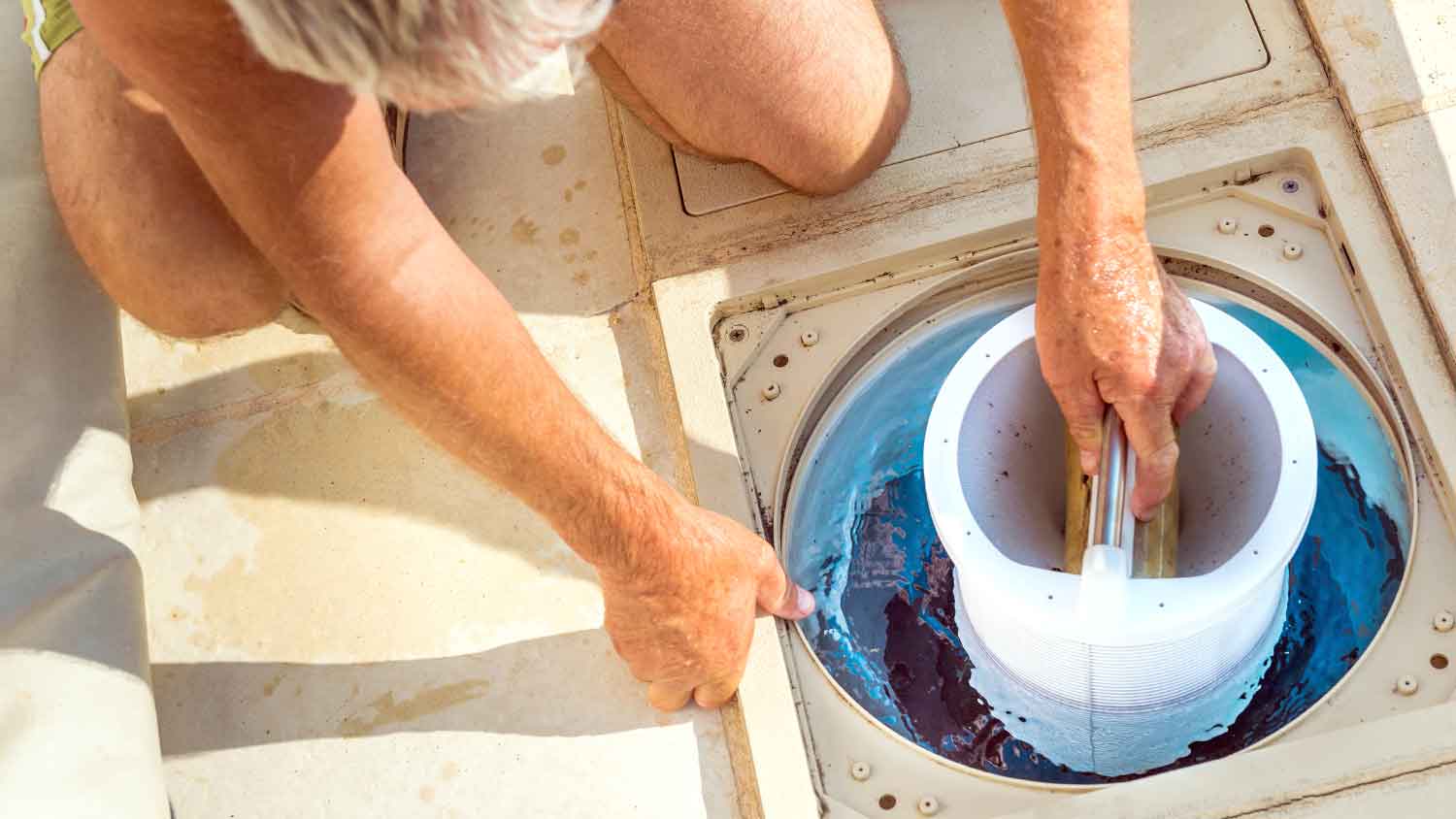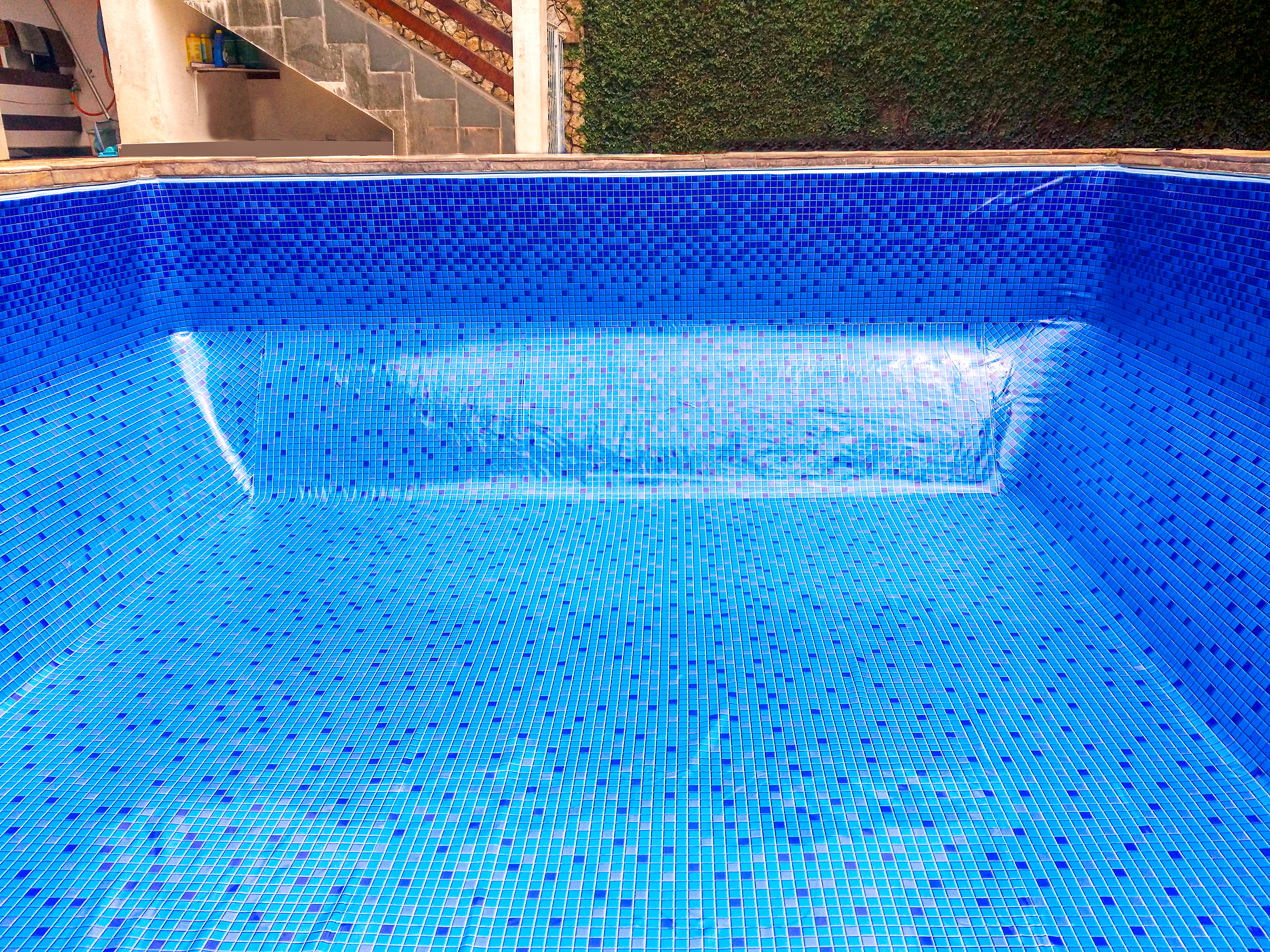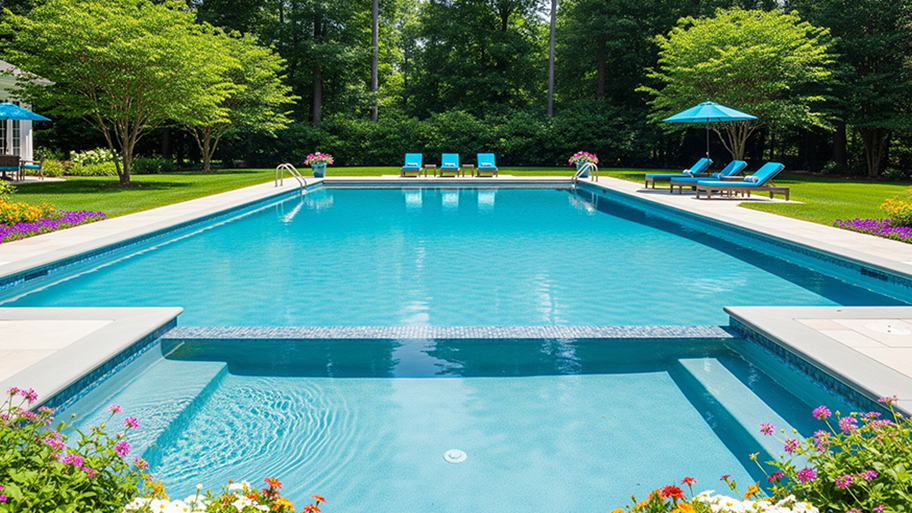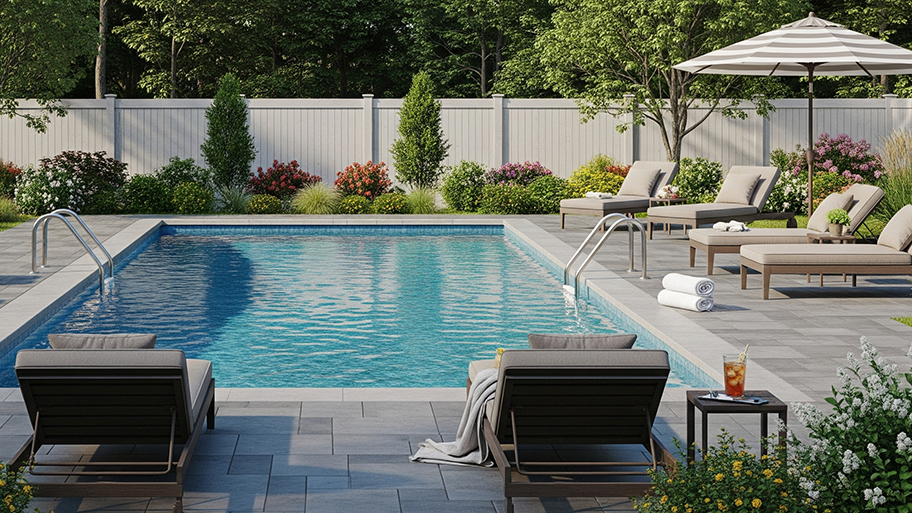
If you’ve been considering installing a new pool in the Buckeye State, this guide will help you understand inground pool costs in Columbus.
Our tips will ensure your repairs go swimmingly


Loud noises, leaks, and poor performance are all common pool pump problems.
Electrical issues may cause a pool pump to shut off unexpectedly.
Air pockets or low water flow may stem from leaks or broken o-rings.
Ongoing pool pump maintenance can keep it from breaking down.
Nothing works harder to keep your pool clean and comfortable than your pool pump. Getting to the heart of why your pool pump isn't working can be nerve-wracking at first, particularly because a new pool pump costs an average of $1,750. In most cases, a little pool pump troubleshooting is all it takes to get it running smoothly in time for your big barbecue. Here are seven common pool pump problems and what could be causing them.
When your pool pump simply will not turn on, it's time to check out the power. Ensure that you didn't trip a circuit breaker or that the pool pump hasn't become disconnected from its outlet—as can be the case with above-ground pools. Next, check that the pool pump timer isn't set to run during different hours.
In other cases, you may hear a low hum coming from your pool pump even though it doesn't appear to be turned on. There could be several culprits causing this:
Broken pool pump capacitor
Clogged or blocked motor blades
Overheating motor due to a blocked motor vent
Pool pumps generally last between eight and 15 years, so if you suspect it could be time to replace yours, bring in a pool professional to confirm there's nothing that can be done to repair it.

A pool pump that turns on but eventually shuts off may also have electrical issues. The circuit may be overloaded due to the wrong combination between your electrical panel and the motor or pump. In this case, it's always best to hire a pool electrician.
Like many electronics, pool pumps will turn off when they overheat or become jammed. A dirty or blocked filter or a jammed motor blade may be keeping the pool pump from regulating its own heat. In the scheme of pool repair costs, repairing the motor will cost between $50 and $300 and replacing a filter ranges between $1,500 and $2,000.
Pool pumps shouldn't make more sound than a gentle hum to accompany a peaceful swim. Choppy, rattling, or grinding sounds are all hints that your pool pump is not working the best it can. Here are some possible causes to consider:
Rattling sounds are a sign that your pool pump is not installed in the base correctly.
Chopping or roaring sounds may be a sign your pool pump is pulling in air or not priming properly.
A loud humming sound that comes and goes may be a sign of an electrical problem.
Screeching sounds may indicate that the motor bearings need repairs or replacement.
Many of these issues are easy to catch if you hire a pro for regular pool maintenance. Not only will pros clean and shock your pool, but they will also keep an ear out for odd sounds before they become a larger issue.
Mechanical elements handling water are bound to require repairs eventually. The seal inside your pool pump that keeps water from escaping is called the o-ring. O-rings will wear down over time and are an easy fix when it's time to replace them. Other seals throughout the system, such as around the motor shaft, may also need replacing.
If you've been looking for a leak in your pool overall, keep in mind that the issue could be coming from the pool pump itself.

Let's say your motor is running, but it's clearly not up to the speed it used to be. While some models run at variable speeds to lower the overall cost to run a pool pump, they should never slow down to the point of not cleaning or heating the water. Begin by checking your filter gauge to ensure it's running with the proper water pressure. A slow or poorly performing pool pump could be from:
A dirty or clogged pool filter
Electrical or wiring issues to your pump or motor
Your pump is allowing air into the system
You have a pool pump leak
Whether you notice a roaring sound or sense that your pool pump isn't running as strongly as it should be, it could be cavitation. Cavitation in your pool pump is when the pump isn't able to pull a constant flow of water and the propeller hits pockets of air instead. Air in your pool pump may stem from:
Suction line air leak
Clogged impeller
Clogged filter
Failed bearing
Failed o-ring
Similarly, your pool pump may not be priming correctly—or pulling in enough water. While many pumps will handle the priming process automatically, you may need to prime your pump on your own or re-prime it after repairs. You may need to prime a pump when air leaks into the system for any of the reasons mentioned above, for example.
Since a pool pump that simply refuses to prime can have a range of issues, this is a great time to call a local pool repair team to get to the bottom of it.
From average costs to expert advice, get all the answers you need to get your job done.

If you’ve been considering installing a new pool in the Buckeye State, this guide will help you understand inground pool costs in Columbus.

The cost of pool liner replacement in Columbus depends on the size and shape of your pool, as well as the liner material and type. Here’s how the costs break down.

Our guide to pool screen enclosure repair costs looks at the price to rescreen an enclosure or install new glass panels.

Baking soda is a budget-friendly way to tackle DIY pool maintenance. Our guide explains how to add baking soda to a pool.

Your pool losing water could cost you money if it’s due to a leak. Keep reading to find out why your pool’s water level keeps dropping and what you can do.

Everything was going swimmingly, but now your pool heater is not working properly. Here are some troubleshooting tips to get you back in business.